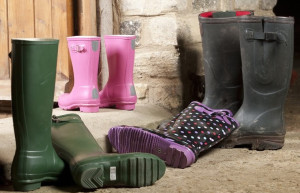
National Gardening Week calls on potential horticulturalists to don their wellies
-
15 April 2013
This week is National Gardening Week (15-21 April) and this year’s campaign has two main focuses: planting for wildlife and horticultural careers.
Cultivate Your Career aims to tackle the looming skills gap in the horticultural industry and bust many of the myths about a career in the sector.
Last year, a survey commissioned by the RHS found that 70% of 18 year olds questioned believed that horticultural careers should only be considered by people who have ‘failed academically’. Nearly 50% of under-25s think it is an unskilled career.
This has spurred the RHS to organise a series of events at their properties during National Gardening Week to show young people the range of horticultural careers out there, offering talks from experts and various activities to inspire them.
In reality, horticulture requires a range of skills. In our field of interior landscaping alone, we need to understand which plants will thrive in different conditions, how to deal with a range of pests and how to care for the needs of each type of indoor office plant, needs which can vary a great deal from specimen to specimen.
And our work brings a lot of satisfaction. Studies have found that regular interaction with nature can bring about a range of health benefits, from simply feeling happier (not to be underrated) to having fewer headaches and other common health complaints. This certainly helps us to convince potential clients that they need office plants, but it also benefits us, who are among plants all day.
The RHS claims that horticulture has some of the most satisfying jobs in the world. The City & Guilds’ Career Happiness Index 2012 found that Florists and Gardeners came top of the list, with 87% agreeing that they are happy in their job. Almost 90% said ‘I am working in an environment that I like and I do something worthwhile and useful’ and 87% said ‘I am doing something challenging and stimulating’. I wonder how many other careers have such positive feedback?
We at Urban Planters believe that the best way to get people to understand and benefit from working with nature is to introduce them to plants from an early age, and where better than in the classroom?
Plants in schools provide cleaner, fresher air, which has multiple benefits in a learning environment. But, by also getting children to care for plants, they have the opportunity to interact with nature from a young age, hopefully in turn nurturing a future interest in gardening for pleasure and maybe even as a career later in life.
Check out two recent case studies for schemes we have installed in educational settings in our news section.
The other part of this year’s Gardening Week is Planting for Wildlife, which aims to get new and experienced gardeners alike to create a wildflower mini meadow, to encourage more wildlife into our outside spaces. The mini meadows can be any size – a window box sown with wildflowers will still be beneficial to lots of creatures – the most important thing is that people get involved.
The National Gardening Week website has lots of information on how to get hold of a free packet of wildflower seed mix and how to prepare, sow and maintain your mini meadow.
Let’s hope we have a glorious summer so we can all appreciate these new patches of wildflowers springing up around the country!
